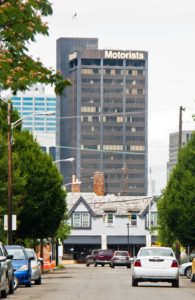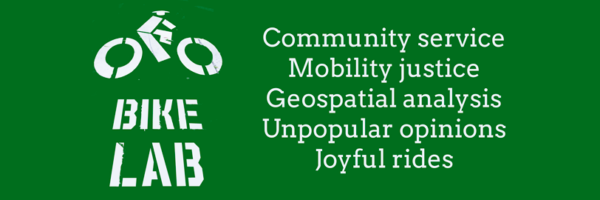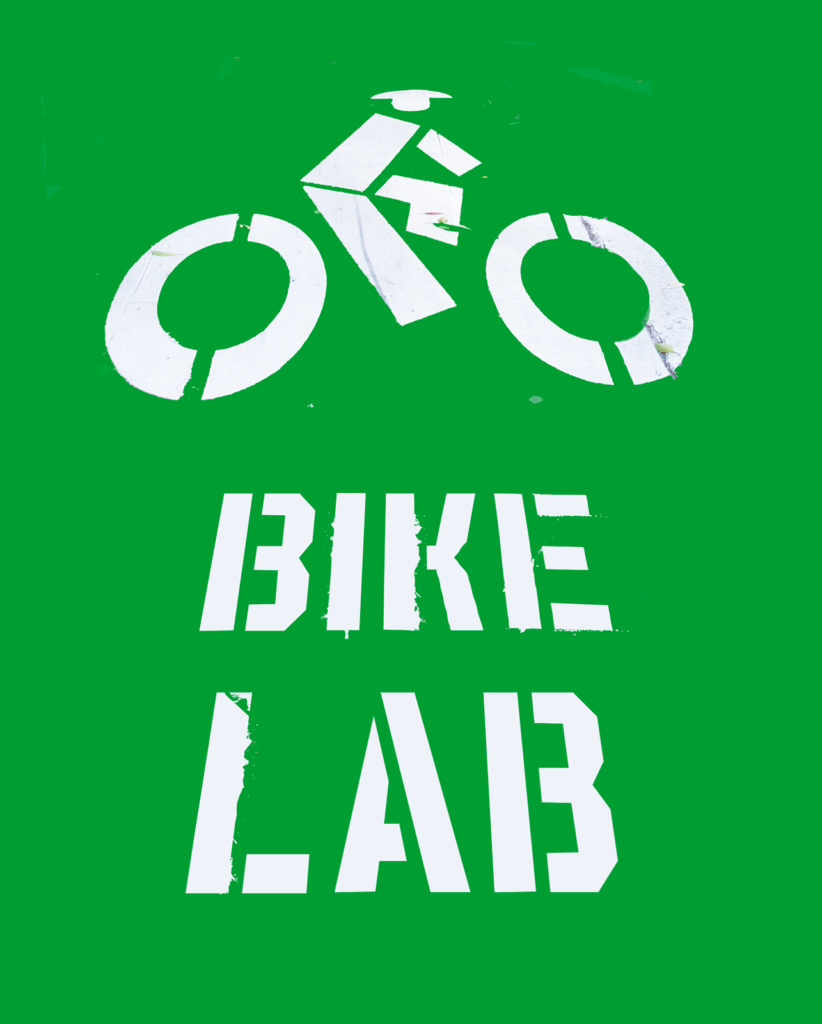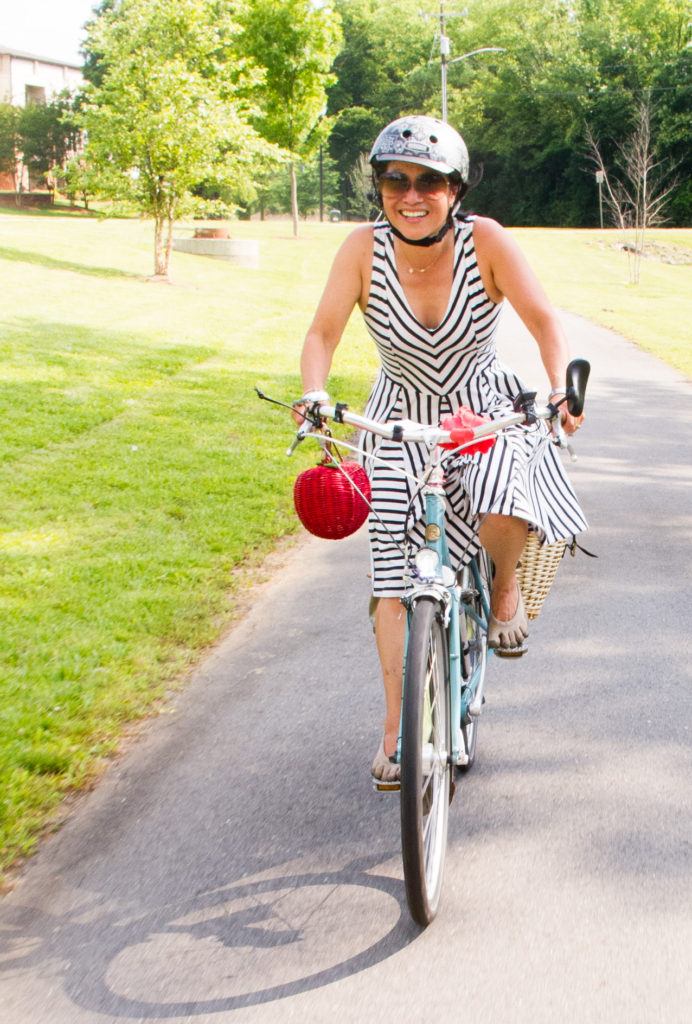
Heading towards downtown Columbus from Old Towne East, you see a tall building with a sign that reads “Motorists.” It’s visible from lots of places in town, and while it doesn’t have any real significance, it seems to emphasize the transportation hierarchy here.
Before arriving in Columbus I’d reached out to Yay Bikes!, the city’s most prominent bike advocacy group, to ask to meet to chat about their work. Their director called me back and asked if I was trying to hire them, which I thought was an odd question. When I explained that I was just a student doing research, she told me that she and her staff wouldn’t have time to talk with me.
I was a bit flummoxed. I’ve never met a bike advocate who wouldn’t go on at length about bike advocacy at the slightest provocation. (And I’ll cop to that myself). It felt like something strange was going on with bike advocacy in Columbus.
Digging a little deeper, there apparently was some sort of conflict among bike groups in Columbus in the past. In addition to Yay Bikes!, there was a group named Consider Biking, and the two groups fell to in-fighting. Over what, I’m not sure, but it looks like it got nasty. Among the bits of detritus I’ve been able to find, there’s a message from 2009 on the Bike PGH (Pittsburgh) message board from someone with Yay Bikes! accusing Consider Biking of plagiarizing the “About” page of Bike PGH’s web site. Which seems quite petty. There was an article about the conflict in The Other Paper, a now-defunct Columbus alt-weekly, that I haven’t yet been able to find the full text of. While in town I asked a few people about the story, and no one really wanted to get into the details.
That led me to thinking about conflict between bike groups. In Charlotte I also felt some tension between the Charlotte Spokes People and Sustain Charlotte, which seemed to align along the classic bike advocacy conflict of vehicular cycling vs. infrastructure advocacy. Those kinds of disputes don’t seem to happen anymore in the Bay Area, and I didn’t notice them in Minneapolis or Austin, either.
One thing we know about subaltern groups is that there is a tendency towards infighting and competition amongst themselves. Instead of banding together to fight for their interests, they can fall into disputes over goals and methods–especially, whether to work within the system or to disrupt it. I’m going to look at some of the research on that question and see how it might apply to bike advocacy groups in cities where biking is marginal. And I’ll also look at what happens when a subaltern group becomes part of the hegemony, which has occurred in San Francisco and Portland.


